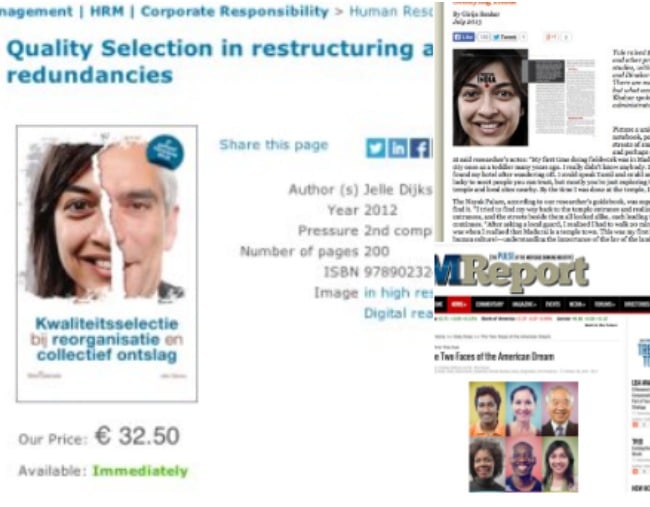
When South African author, Shubnum Khan, was at university she was offered a free photoshoot.
The photographer offered Khan and her friends some free professional portraits in exchange for using the photos in his portfolio.
Khan went along to the photoshoot, received her free photos, and didn’t give it a second thought.
Then six years ago, a friend in Canada told Khan she had found her face on an advertisement promoting immigration in a local newspaper.
At first, Khan was confused about how her image had turned up in a newspaper on the other side of the world, then she remembered the photoshoot.
“After some WTF moments, a friend reminded me we did a photoshoot a few years ago. When I was at university I heard about a free photoshoot by a CT photographer who promised us professional portraits in exchange for shooting us,” she explained on Twitter.
“It was called the 100 Faces Shoot & the photographer took photos of 100 various faces of all ages & races in Durban. Young friends & I were excited; we signed a release form at the start (I thought it was to give him permission to use the photos for his portfolio). We didn’t read the small print. I know. It was stupid.”
Since then, Khan’s image has turned up in countless advertisements and on numerous websites across the globe.
Her face has been used to advertise everything from carpets in New York, dental sedation in Virginia, treks in Cambodia and even university courses in Australia.
